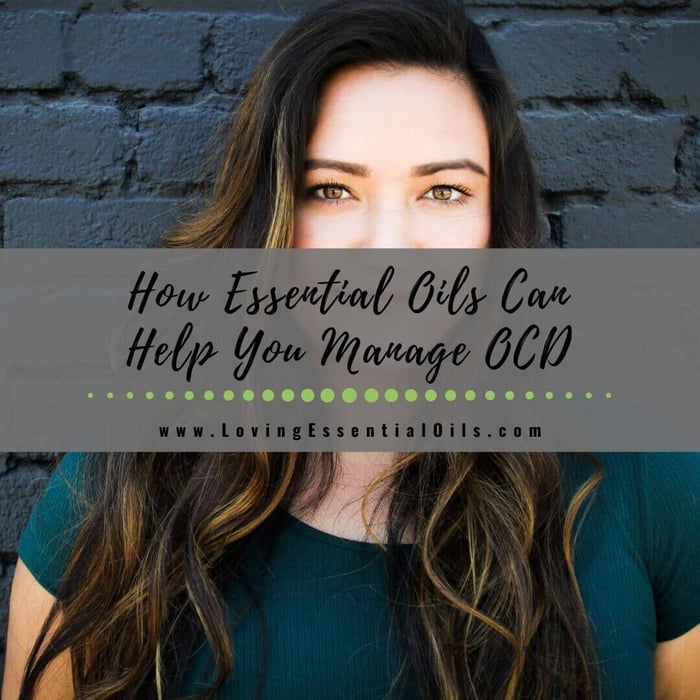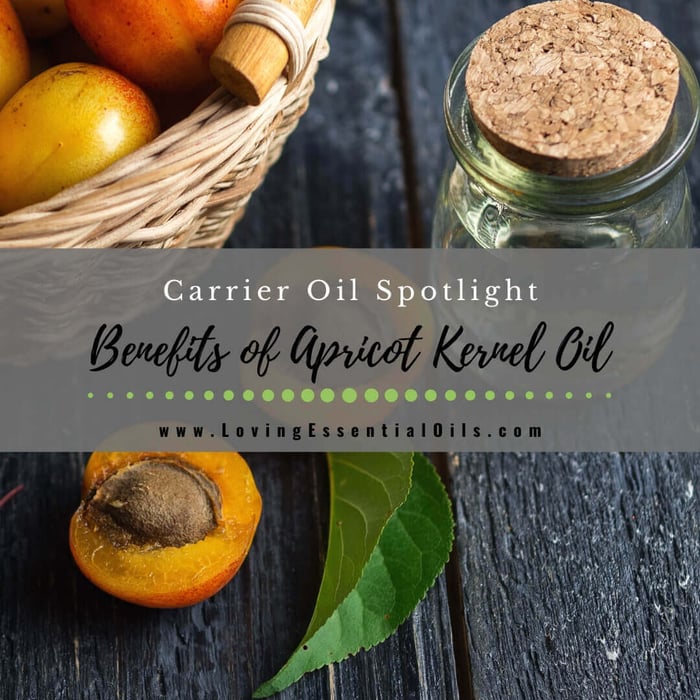Are you constantly feeling overwhelmed and consumed by your OCD triggers and compulsions? Obsessive-compulsive disorder (OCD) is difficult to manage as the barrage of intrusive thoughts and compulsive behaviors that come with it.
From repetitive hand-washing to constant checking and counting, OCD can take over your life and leave you feeling helpless and overwhelmed.
But what if there was a natural, non-invasive way to help manage your symptoms? Enter essential oils. These effective plant extracts have been used for centuries to promote physical and emotional well-being, and recent studies have shown their potential benefits for managing OCD triggers and compulsions.
How Essential Oils Can Help You Manage Your OCD Triggers
Essential oils are highly concentrated extracts obtained from plants and contain potent aromatic compounds that can stimulate the brain and have a range of therapeutic effects.
Essential oils are commonly used for aromatherapy, massage, and skincare, but their benefits extend far beyond that. And these essential oils have been shown to have a positive impact on mental health.
Studies have shown that specific essential oils can help reduce anxiety, promote relaxation, and even alleviate symptoms of depression. This makes them a promising natural alternative for managing OCD triggers and compulsions.

What are the Benefits of Essential Oils for OCD?
Living with OCD can be challenging, but essential oils may offer a natural way to manage symptoms and promote well-being. Let's check out a few benefits that essential oils may offer for OCD:
Reduced anxiety
- Anxiety is a common trigger for OCD, and essential oils such as lavender and chamomile have been shown to have calming effects on the nervous system. In a 2015 study, inhalation of lavender oil was found to significantly reduce anxiety levels in patients with generalized anxiety disorder [Source].
- Similarly, another study has found that inhalation of chamomile oil reduced anxiety levels in patients undergoing coronary angiography [Source].
Improved mood
- Essential oils may have a positive impact on mood and emotional well-being. In a study, inhalation of lavender oil was found to improve mood and reduce depression in patients undergoing hemodialysis.
Enhanced relaxation
- Essential oils can be used to promote relaxation and improve sleep quality. A 2017 study found that inhalation of lavender oil enhanced sleep quality in patients with insomnia [Source].
- Similarly, another research has found that inhalation of ylang ylang oil reduced stress levels and improved sleep quality in female nurses working in intensive care units [Source].
Alleviated compulsions
- While research on essential oils and OCD specifically is limited, some oils such as frankincense and sandalwood have been used traditionally in aromatherapy to alleviate symptoms of OCD.
- These oils may help promote relaxation and reduce anxiety, which in turn can help reduce compulsive behaviors.
Incorporating essential oils into your self-care routine may offer a natural and complementary way to manage OCD symptoms and promote overall well-being.
Note: Essential oils should not be used as a substitute for professional medical care, and you should always ensure to talk to your healthcare provider before incorporating new treatments into your routine.

Lavender Oil
Lavender oil is among the most popular essential oils, and for a good reason – it offers a range of potential benefits for managing OCD symptoms, particularly when it comes to anxiety and stress.
Scientific studies have shown that lavender oil can have a calming effect on the nervous system that can help reduce feelings of anxiety and stress – common triggers for OCD.
Studies suggest that lavender oil may be an effective natural remedy for managing OCD symptoms related to anxiety and stress. By promoting relaxation as well as calming the nervous system, lavender oil may help reduce the severity and frequency of intrusive thoughts and compulsions.
In addition to its potential benefits for OCD, lavender oil has also been shown to have a positive impact on sleep quality, mood, and overall well-being.
Incorporating lavender oil into your self-care routine – whether through aromatherapy, massage, or bath products – may offer a natural and complementary way to manage your symptoms and improve your quality of life.
However, as with any natural remedy, it's important to use lavender oil safely and under the guidance of a healthcare professional.
Bergamot Oil
Bergamot oil is another essential oil that may offer potential benefits for managing OCD symptoms. This oil is extracted from the peel of the bergamot orange and is often used in aromatherapy for its uplifting and stress-relieving properties.
Studies have shown that bergamot oil can have a positive impact on mood, anxiety, and stress levels, making it a promising natural remedy for individuals with OCD who experience these symptoms.
While more research is needed specifically on the effects of bergamot oil on OCD, however studies suggest that this essential oil may offer potential benefits for managing symptoms related to anxiety and stress. Additionally, bergamot oil has a refreshing and uplifting scent that can boost mood and promote feelings of well-being.
As with any essential oil, it's important to use bergamot oil under the guidance of a healthcare professional. Bergamot oil can cause skin sensitivity and may interact with certain medications, so it's vital to follow proper dilution and usage guidelines.
Ylang Ylang Oil
Ylang ylang oil is another essential oil that may offer potential benefits for managing OCD symptoms. This oil is extracted from the flowers of the ylang ylang tree and is often used in aromatherapy for its calming and sedative properties.
Studies have shown that ylang ylang oil can have a positive impact on mood and stress levels, making it a promising natural remedy for individuals with OCD who experience these symptoms. A 2013 study found that inhalation of ylang ylang oil reduced stress levels and increased feelings of calmness in healthy volunteers [Source].
Another study from 2018 found that ylang ylang oil was effective at reducing anxiety levels in patients undergoing coronary angiography, a procedure that can be stressful and anxiety-provoking [Source]. However, more research is needed specifically on the effects of ylang ylang oil on OCD.

How to Use Essential Oils for OCD
If you want to use essential oils to manage your OCD symptoms, there are several different ways you can incorporate these oils into your self-care routine.
One popular method is aromatherapy, which involves inhaling the scent of the oils to promote relaxation and reduce stress. You can choose a diffuser to disperse the oil throughout your room or simply place a few drops onto a tissue or cotton ball and inhale deeply.
Another option is to use essential oils in massage or bath blends. Mix a few drops of your chosen oil with a carrier oil, like jojoba, or you can use coconut oil. Then apply to your skin during a relaxing massage or add a few drops to your bathwater to create a soothing and fragrant soak.
Essential oils are highly concentrated, and they should be used with caution. Always follow proper dilution guidelines and never apply undiluted oil directly to your skin. Additionally, certain oils may interact with medications or cause skin irritation, so it's important to consult with a medical professional before using essential oils, especially be careful if you have any underlying health conditions.
When it comes to dosage, a little goes a long way with essential oils. Typically, just a few drops are all you need to experience the benefits of these powerful plant extracts. It's always best to start with a small amount and gradually increase as needed while closely monitoring your body's response to the oil.
Final Thoughts on Seeking Professional Help for OCD Management
While essential oils may offer a natural and complementary approach to managing OCD symptoms, note that they should not be considered a substitute for professional help. OCD is a complex mental health condition that may have a significant impact on daily life, and seeking guidance from a trained healthcare professional is essential for effective management.
A mental health professional can provide a comprehensive assessment of your symptoms, develop an individualized treatment plan, and offer ongoing support as you navigate your journey toward recovery. They may recommend evidence-based treatments such as cognitive-behavioral therapy (CBT) or medication, which have been shown to be effective in managing OCD symptoms.
Additionally, the benefits of essential oils may be limited to managing symptoms such as anxiety and stress. In some cases, using essential oils may even exacerbate symptoms or interact negatively with medications. Therefore, it's crucial to approach the use of essential oils for OCD management with caution and under the guidance of a healthcare professional.






